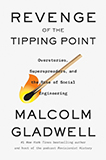The new civil section of the U.S. naturalization test went into effect today. According to CNN, the new test is more conceptual and less factual than the old:
The new civics list, a pool of 100 possible questions for a test of up to 10, omits the old “How many stars are there on our flag?” and “Name the amendments that guarantee or address voting rights.” Taking their place are questions like: “There are four amendments to the Constitution about who can vote. Describe one of them,” and “What is one responsibility that is only for United States citizens?”
Although the new questions are designed to ensure a more thorough understanding of the U.S. government, its laws, and citizens’ rights, there are concerns that it is unfair to those whose first language is not English, as well as to those without the benefits of higher education.
My parents became eligible for naturalization 8 years ago. Neither of them attended college, nor do they know English well. As a result, they studied for months for the test, taking classes at a Korean community center, watching videos, and quizzing each other. Like many immigrants, they practically memorized the list of possible questions and answers so that they would not have to worry about the language barrier.
My parents passed with flying colors and proudly became U.S. citizens.
Because my parents became naturalized after I had passed the age of 18, I had to take a separate test in order to become a citizen. As an ignorant college student, I thought to myself, “Pssh, it’ll be a piece of cake. I took AP American History in high school and did extremely well – I don’t need to study!”
I almost failed the test.
I’ll never forget the last series of questions:
“Who becomes President if the standing President dies or is unable to serve?”
“Vice-President.” (That was easy)“Who becaome President if that Vice-President is also unable to serve?”
“Err…Secretary of State?”
The answer was Speaker of the House. (For a list of presidential succession, check out this article from mental_floss.)
In the end, I passed the test by one question. If I had gotten just one more question wrong, I would’ve failed.
I doubt many citizens would be able to do better on the test I took 7 years ago, let alone this new test.
I once heard a story about a Korean grandmother who was taking the naturalization test. She did not know many words in English, so she kept repeating the same answer for different questions:
“Who was the first President of the United States?”
“George Washington Bridge.”“How many amendments are there in the Constitution?”
“George Washington Bridge.”“How many stripes are there on the U.S. flag?”
“George Washington Bridge.”
Obviously this grandmother did not pass the test, and rightfully so – an immigrant who has no grasp of the English language at all should not be allowed naturalization, in my opinion. However, I worry that tax-paying, law-abiding members of society who know just enough English to live a life in the U.S. – just like my parents – will have increased trouble passing the new test, a test that most citizens would fail.
What do you think?






 I like books, gadgets, spicy food, and art. I dislike shopping, hot weather, and the laws of entropy. Although I am a self-proclaimed computer nerd, I still have a love for handbags and makeup... and I am always teetering on high heels. To learn more about me, visit the
I like books, gadgets, spicy food, and art. I dislike shopping, hot weather, and the laws of entropy. Although I am a self-proclaimed computer nerd, I still have a love for handbags and makeup... and I am always teetering on high heels. To learn more about me, visit the 


On the one hand it feels unfair to make immigrants pass a test that most American citizens could not pass. On the other hand as a law student I’ve got a newfound appreciation of the Constitution and I approve of any attempt to get people to better understand what makes the USA so special; the freedoms that are guaranteed with no escape clauses.